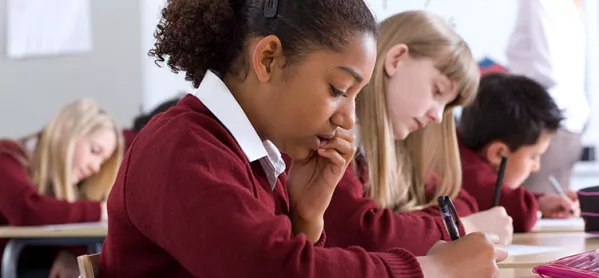There were mixed verdicts on today's key stage 2 reading test, with some teachers saying it was "tricky" – especially at the end – but others thinking it was fair.
Around 600,000 10- and 11-year-olds had to read and answer questions on three texts during the one-hour reading test today, on the second day of Sats week.
Since the 2016 reforms to KS2 Sats, reading has been seen as the toughest test, but today the feeling was more mixed.
Opinion: Think Sats just impact Year 6? They affect the whole school...
Sats week: 'Fair' Spag test kicks off Sats week
Humour: Eyes down, it's time for Sats reading test bingo
Michael Tidd, headteacher of Medmerry Primary School in West Sussex, said: "The problem with the 2016 paper was that the first text was really hard. They despair if they are struggling with the first one.
Sats reading test 'was lovely'
"The test this year was pretty fair. It's much better to get progressively harder. It is accessible for everyone to have a go, then it gets harder as you go through – but that is as it should be."
"It was a lovely test today," said Chris Dyson, head of Parklands Primary School in Leeds. "The vocabulary was very accessible. The children seemed happy enough. Hopefully, as long as the threshold [pass mark] doesn't go up, it should be straightforward."
And there was one teacher feeling particularly lucky.
Last year, the reading test was generally thought of as fair, although there were concerns that it was challenging for children with English as an additional language.
Reading has been the subject with the lowest proportion of children reaching the expected standard in the previous three years.
When the new “tougher” Sats were introduced in 2016, the reading test was so hard that it reduced children to tears.
And a later Ofqual investigation confirmed that the 2016 test, which a quarter of pupils did not finish, had been “unduly hard”.
In 2018, 75 per cent of pupils reached the expected standard in reading, up from 72 per cent in 2017. This compared with 76 per cent of pupils reaching the expected standard in maths and 78 per cent doing so in spelling, punctuation and grammar (Spag). In writing, which is teacher-assessed rather than tested, 78 per cent of pupils reached the expected standard.
Yesterday, the initial verdict on the spelling, punctuation and grammar test was that it was "fair" and "suitably challenging".
The maths tests take place tomorrow and Thursday.
Note to teachers: We know how important these tests are, but please do not discuss the content as more children will be taking the paper over the next few days.




